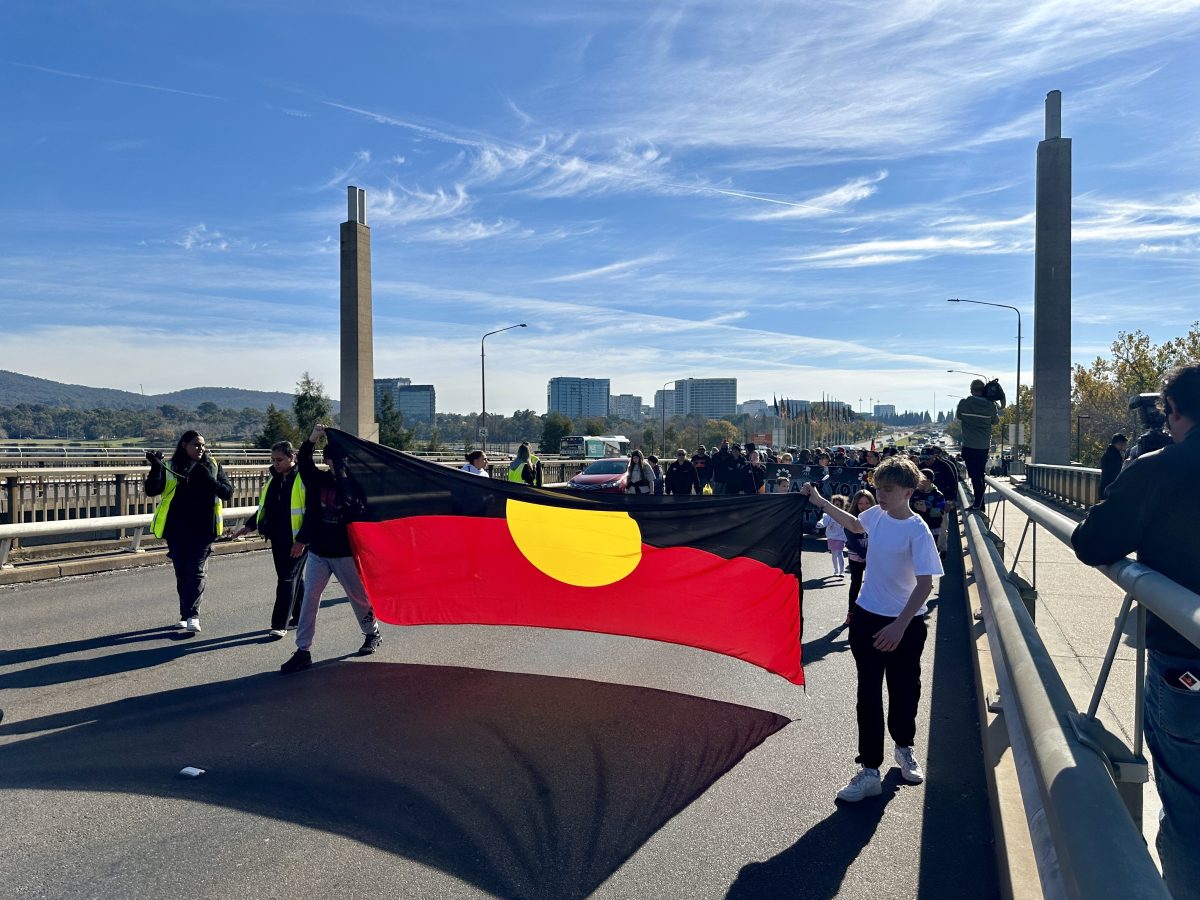
The crowd set off from Regatta Point at 10:30 am. Photo: James Coleman.
Hundreds of people marched across Commonwealth Avenue Bridge this morning in the first ‘National Sorry Day’ walk since before COVID.
Commemorating the anniversary of the tabling of the Bringing Them Home report in the Australian Parliament in 1997, National Sorry Day is marked by events across the country to commemorate survivors of the Stolen Generations.Organised by Winnunga Nimmityjah Aboriginal Health and Community Services and proudly supported by The Healing Foundation this year, the annual walk has not been held since 2019.
Canberrans of all backgrounds attended, including more than 100 primary school students, proudly holding banners they had made as part of the bridge walk’s banner competition.
“It’s amazing – I think we’ve got 95 students from one school alone, so a great turnout,” Ngunnawal girl Tahalianna Soward-Mahanga says.
Now in her last year at Erindale College, Tahalianna remembers joining the National Sorry Day walk for the first time as a 10-year-old in 2017.
“I didn’t quite get it at first, but then when I walked, it was so inspirational for me – walking with my elders and my family.”
She says it feels like a “full circle” to be back now.
“It’s great we’re getting our young ones coming through and getting them to understand the significance of the day is really important. I feel they’ll remember this day, like I did.”
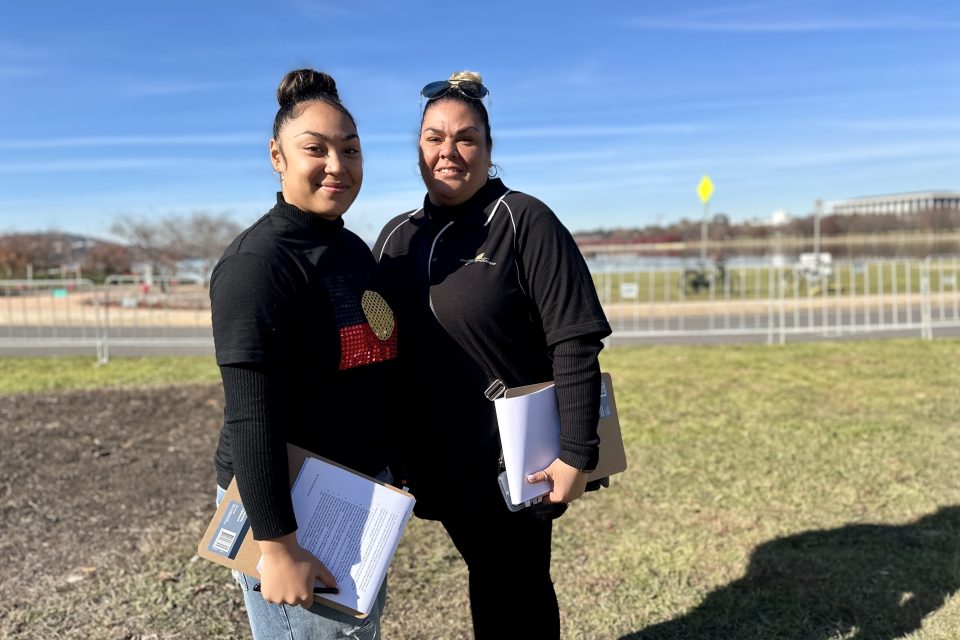
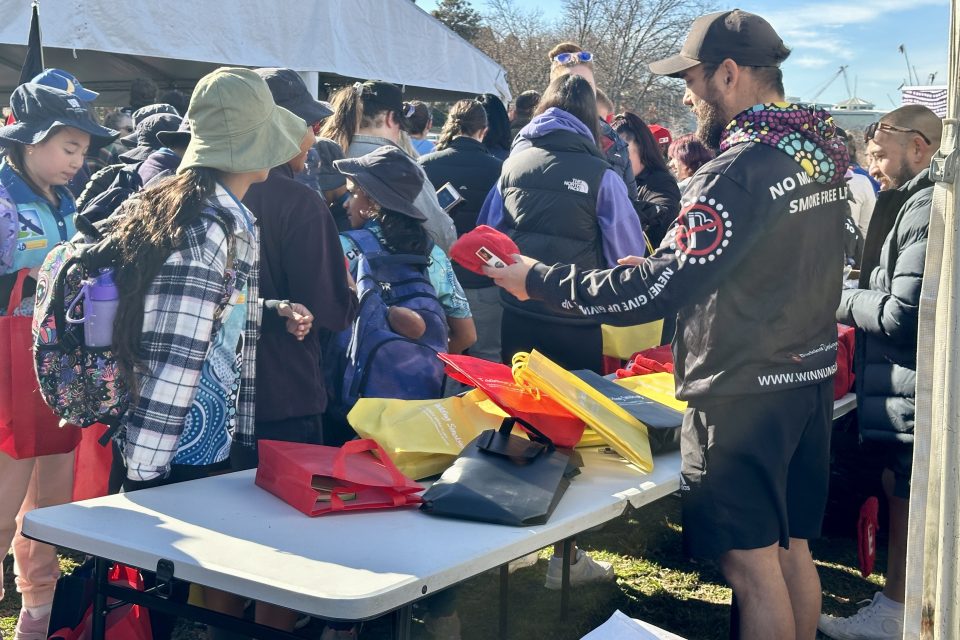
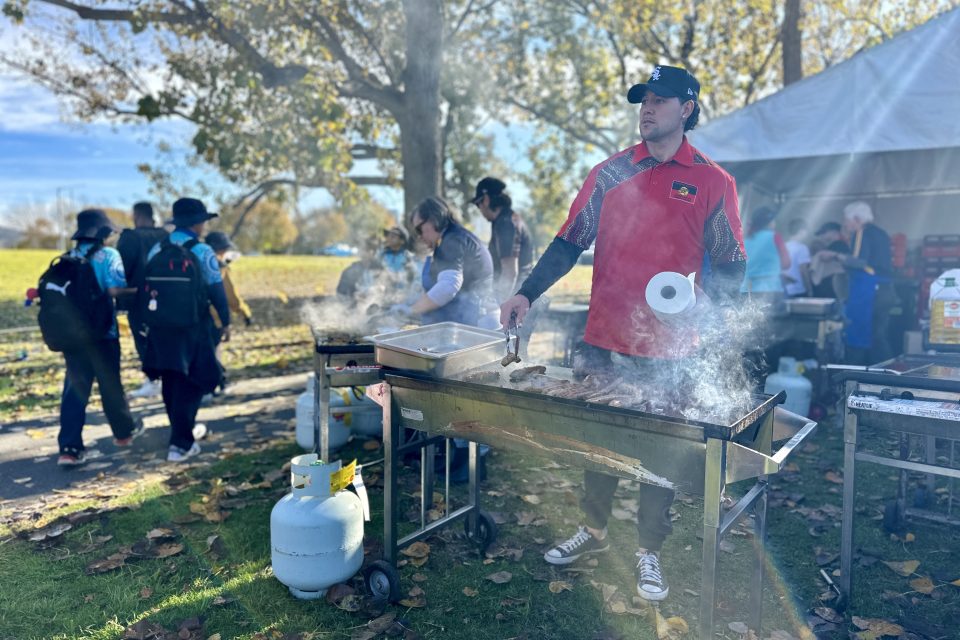
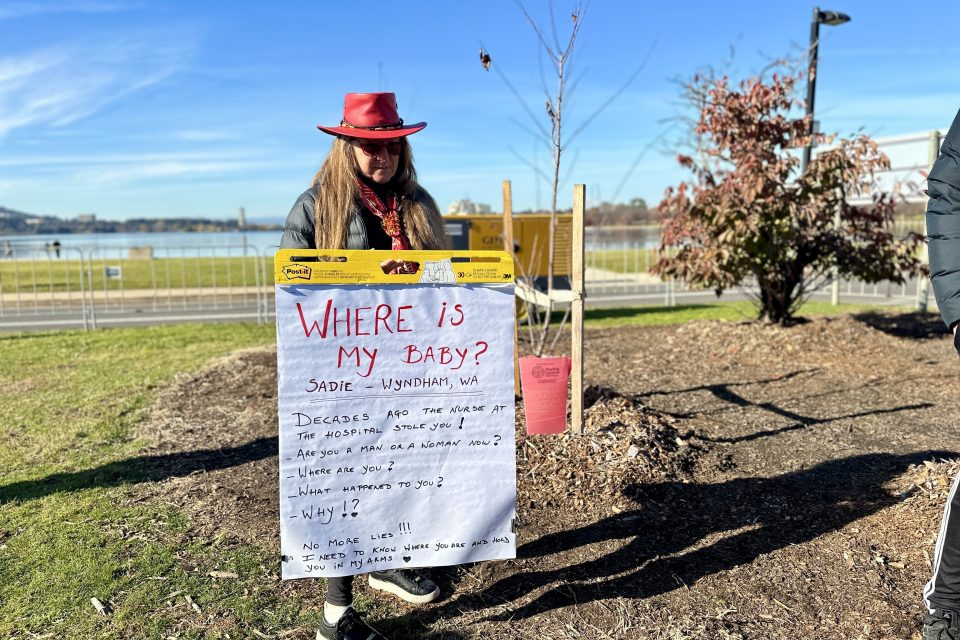
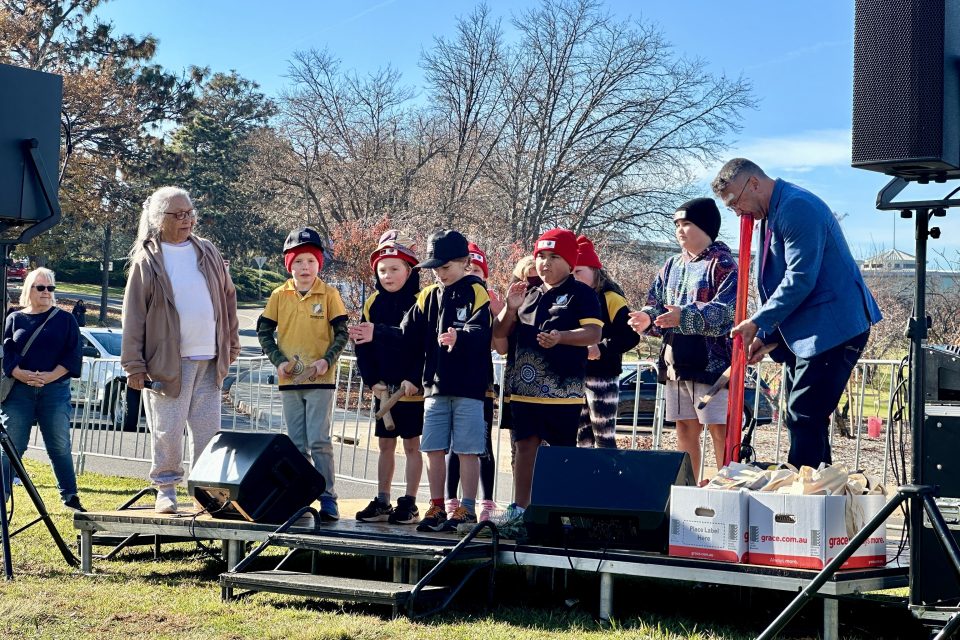
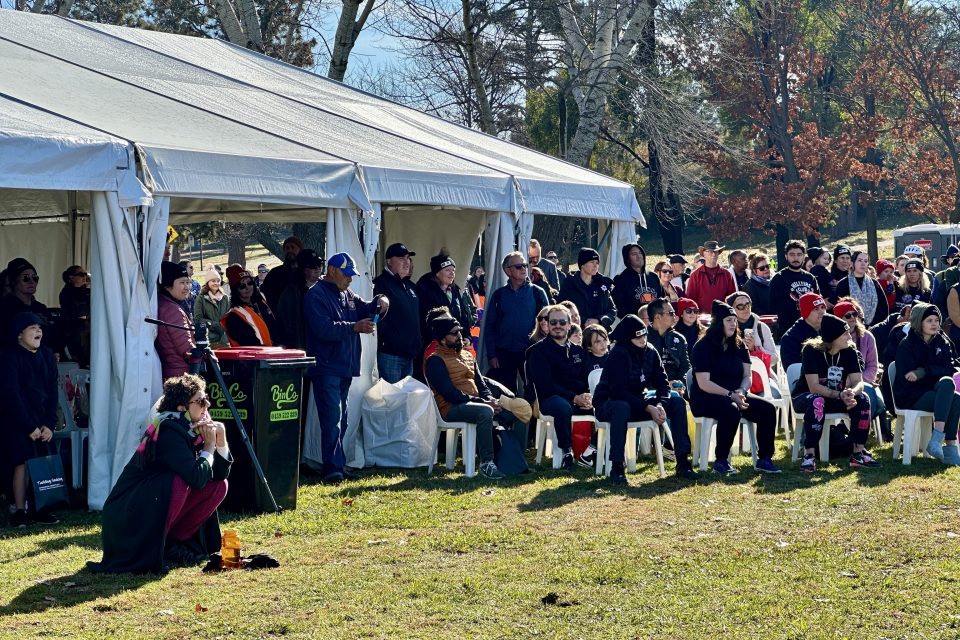
It is estimated between 1 in 10 – and possibly as many as one in three – Indigenous children were removed from their families and communities between 1910 and the 1970s and put in institutions, fostered or adopted out to non-Indigenous families.
These have become known as the ‘Stolen Generations’.
In 1995, then Prime Minister Paul Keating set up a national inquiry to investigate these forced removals. Commissioners spoke to more than 1000 Aboriginal and Torres Strait Islander people about their experiences.
The report, handed down two years later, consisted of 54 recommendations to redress the impacts of the removal policies and address ongoing trauma.
Recommendations included a national apology, reparation payments, improved services for Stolen Generations members and a process for monitoring the implementation of the report’s recommendations.
The Healing Foundation CEO Shannan Dodson says that not enough has been done for nearly 30 years.
“I think what’s driving people to be here today is the understanding that the history of the Stolen Generations is a scar on this country,” she says.
“The walk is important as a way of commemorating these survivors in a very open and deliberate way because so many survivors feel like there’s still not enough education about the history and experiences they’ve had.
“This is a good opportunity to put it in front of people’s faces and have that opportunity to come together and talk about it.”
The foundation, set up to “amplify the voices and lived experience of Stolen Generations survivors and their families”, is calling for survivors in all states to be eligible for redress schemes (as are currently offered in Western Australia and Queensland), among other priorities.
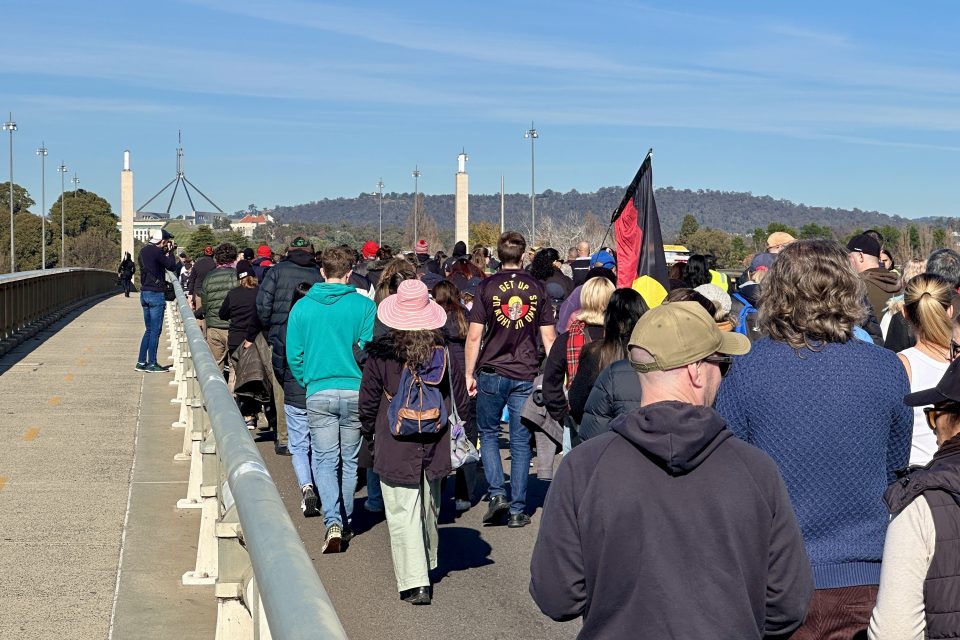
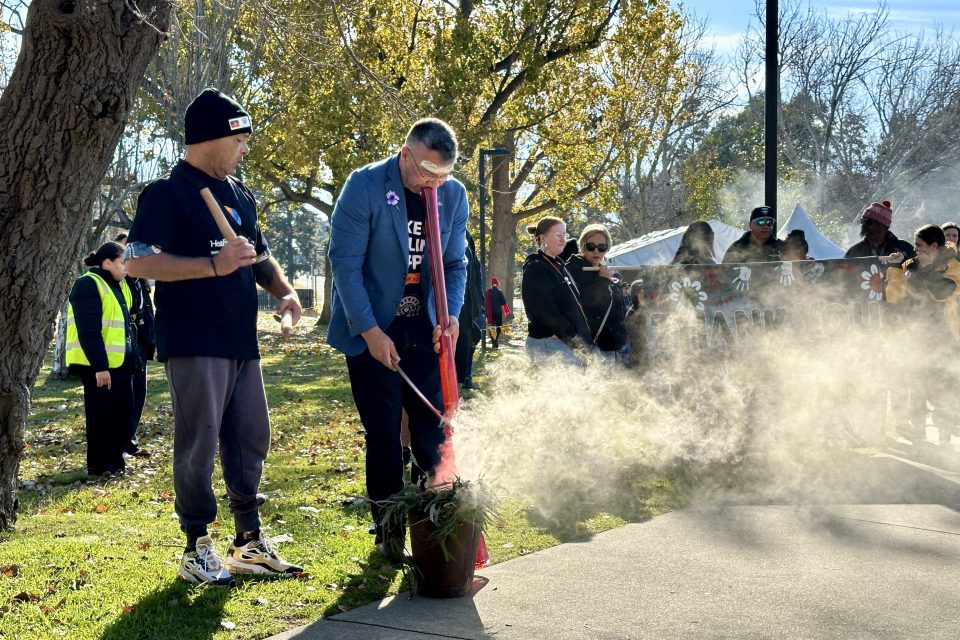
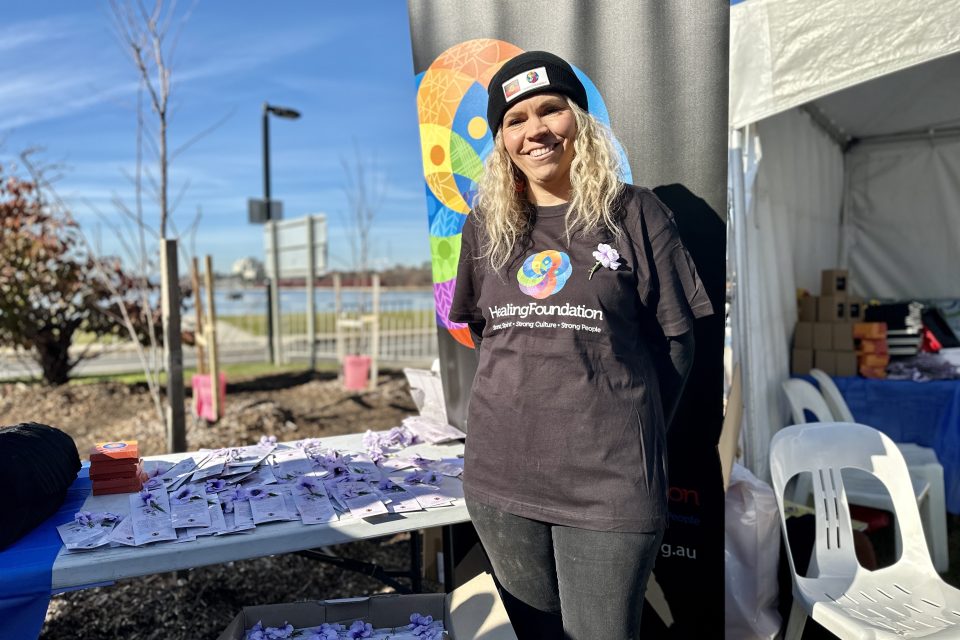
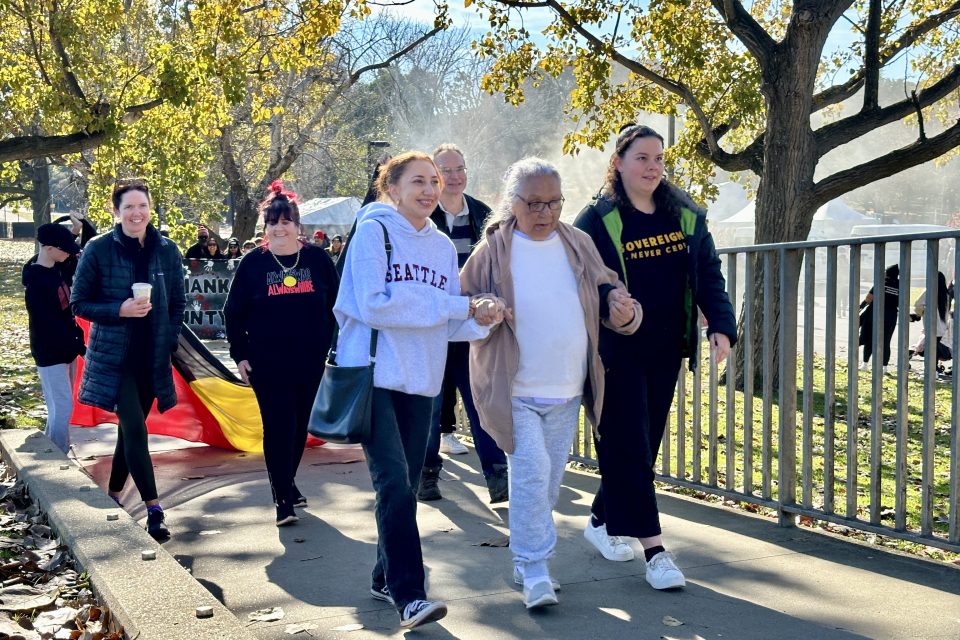
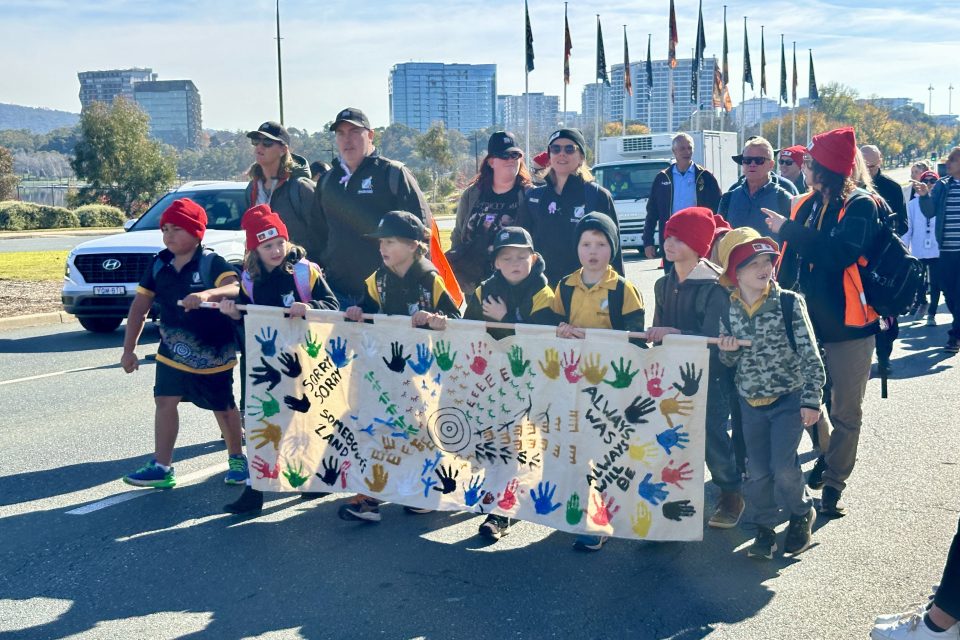
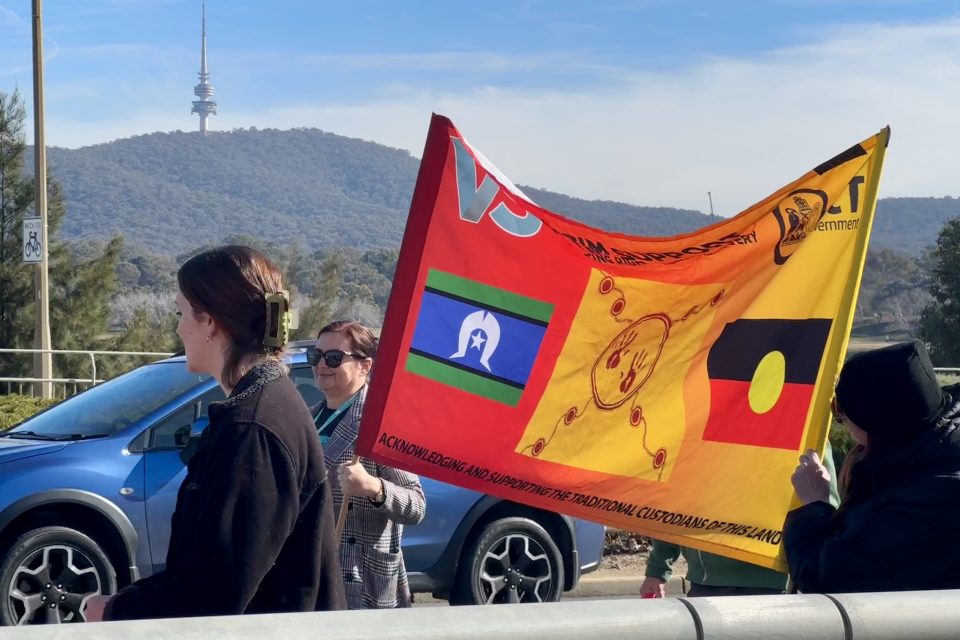
Winnunga Nimmityjah Aboriginal Health CEO Julia Tongs says the walk will continue until all 54 recommendations of the Bringing Them Home report and those of the 1987 Royal Commission into Aboriginal Deaths in Custody are implemented.
“Neither of them have been fully implemented,” she says.
“We don’t need any more reports. We don’t need any more evaluations. We don’t need any more reviews. We need action. And the thing that concerns me is that the little kids coming today – they’re going to still be walking over this bridge in years to come because of what’s not happening.”
Reconciliation Day is 27 May. For more information about events, visit Our CBR.












